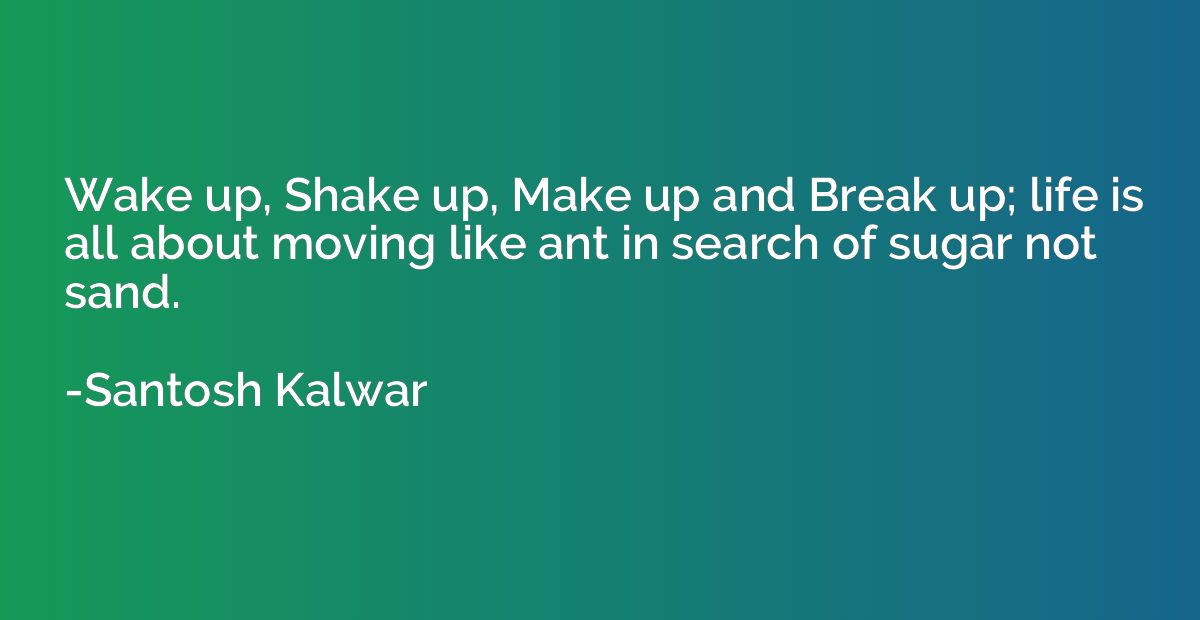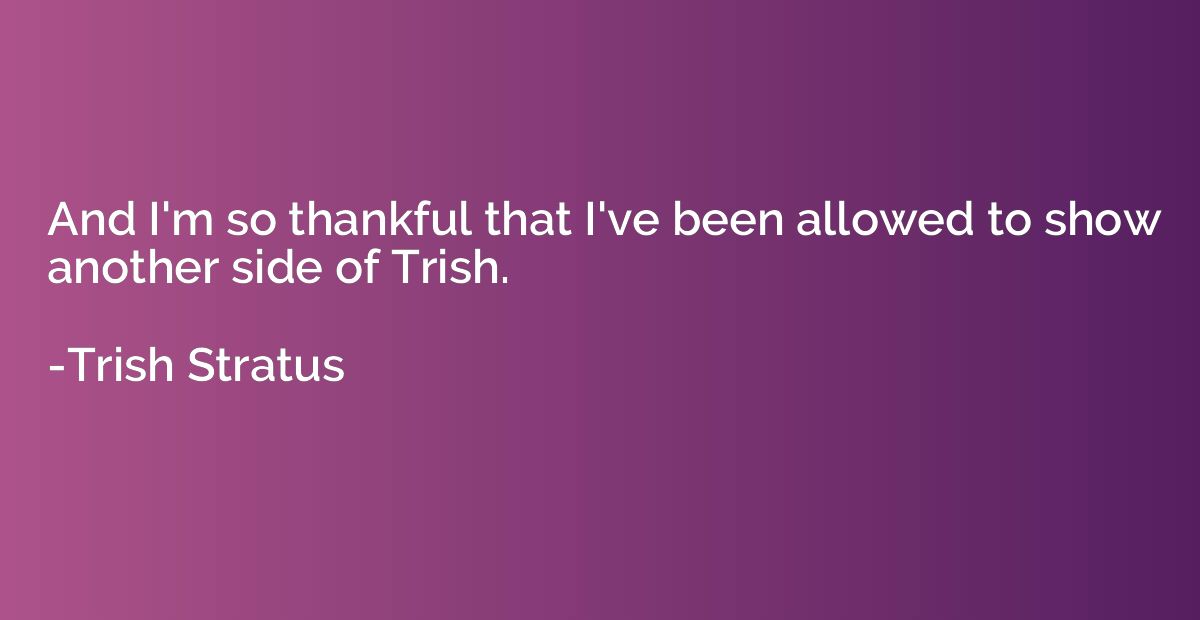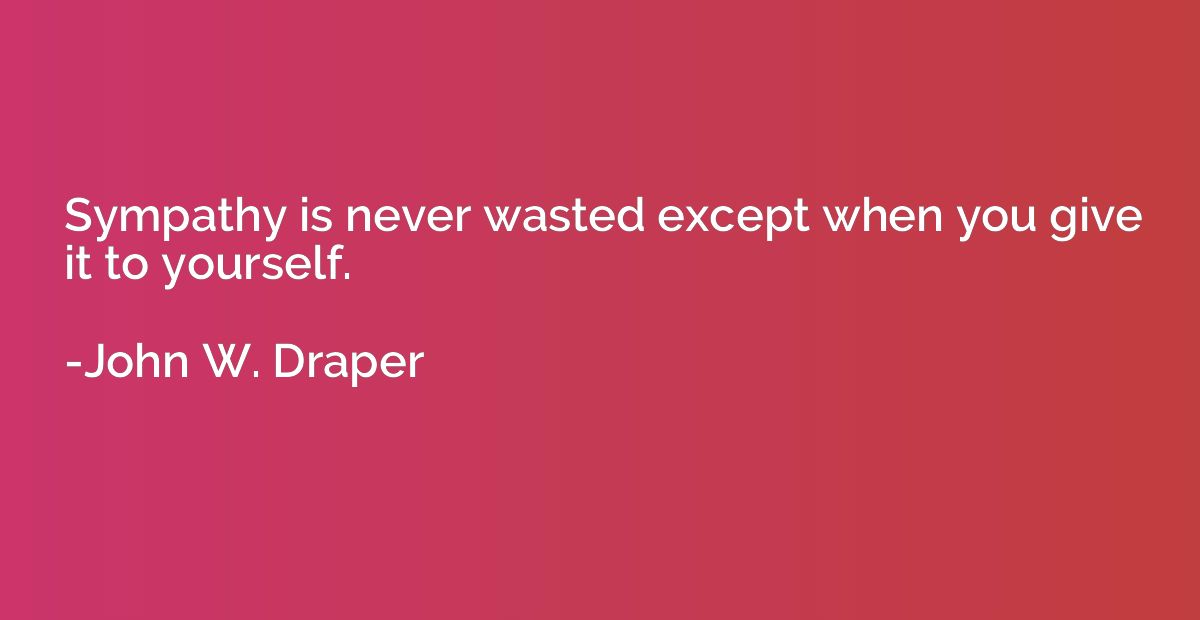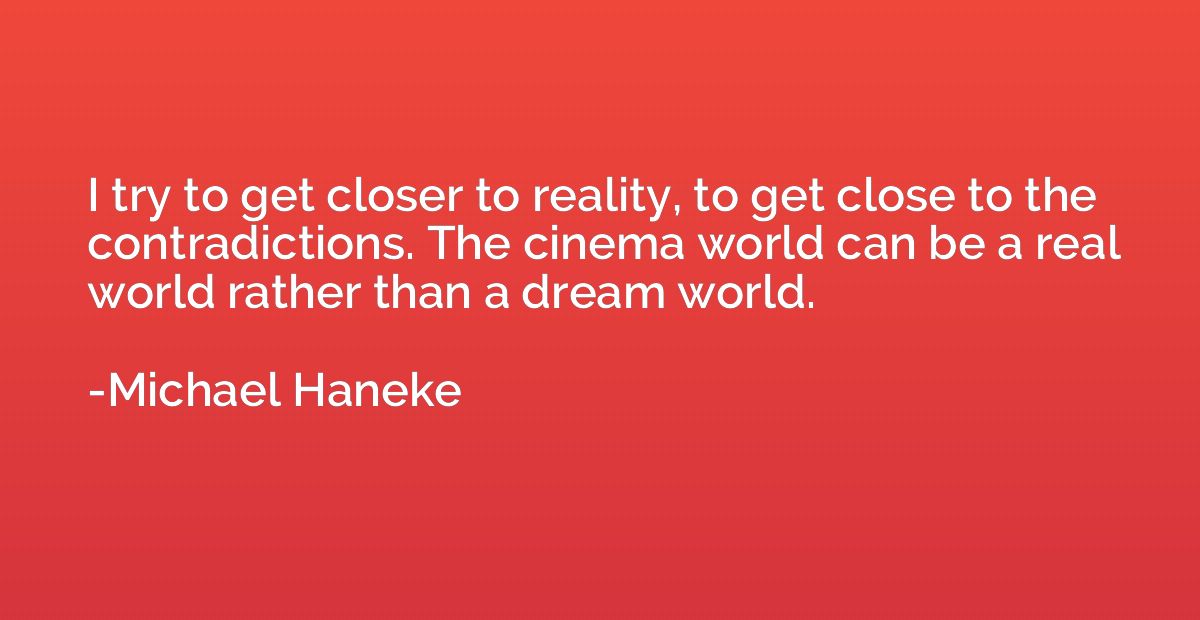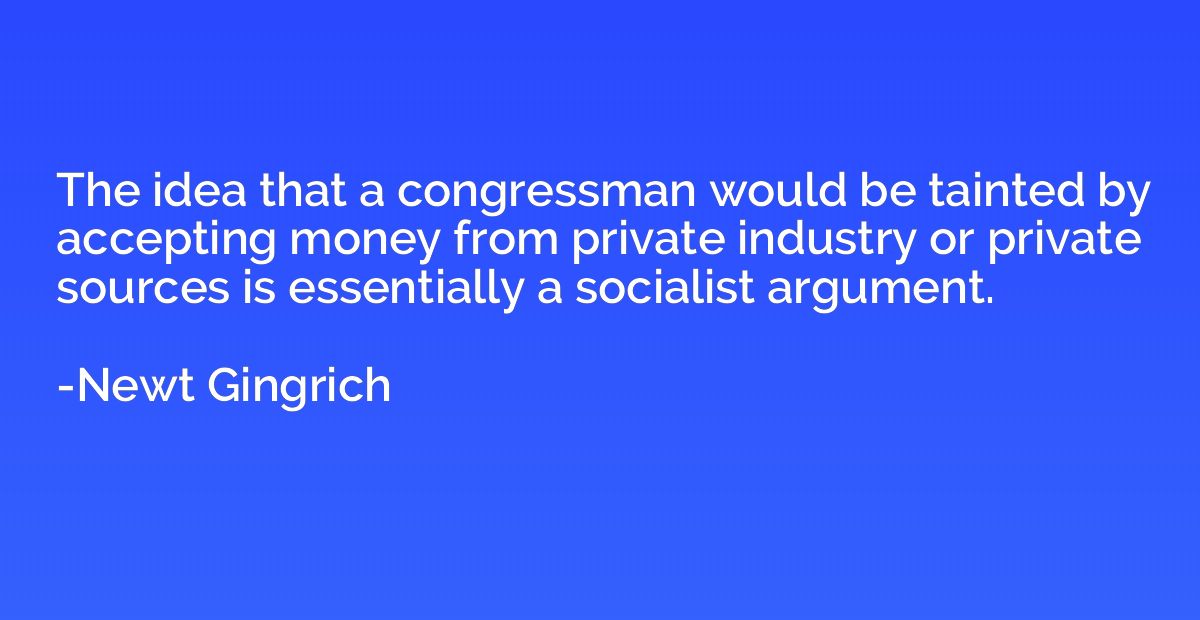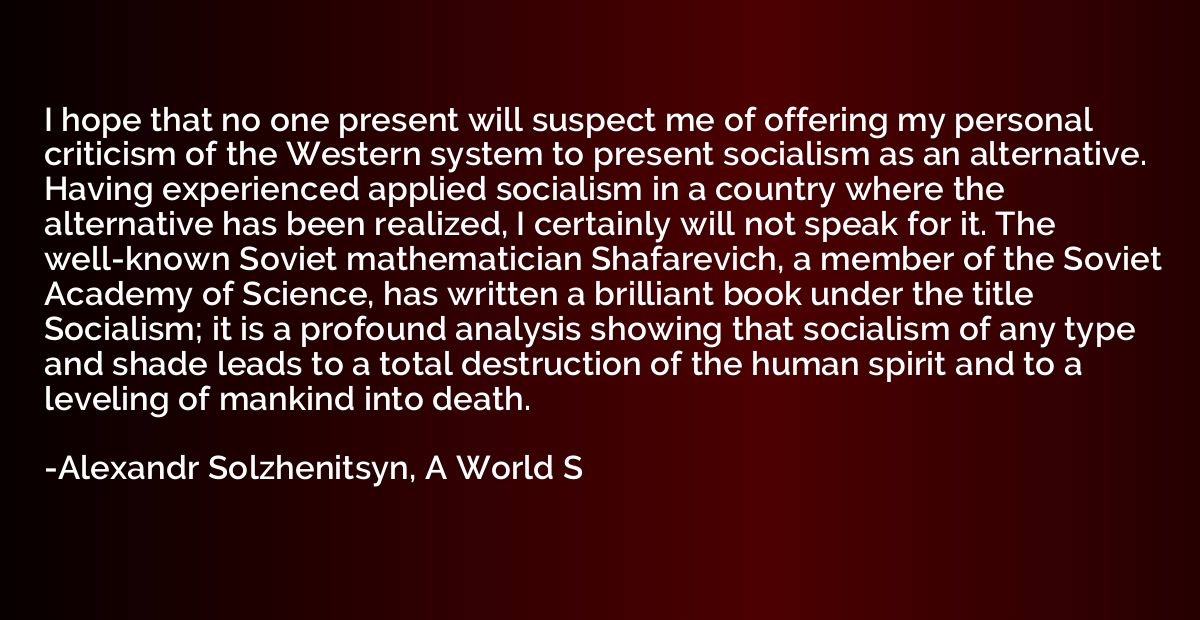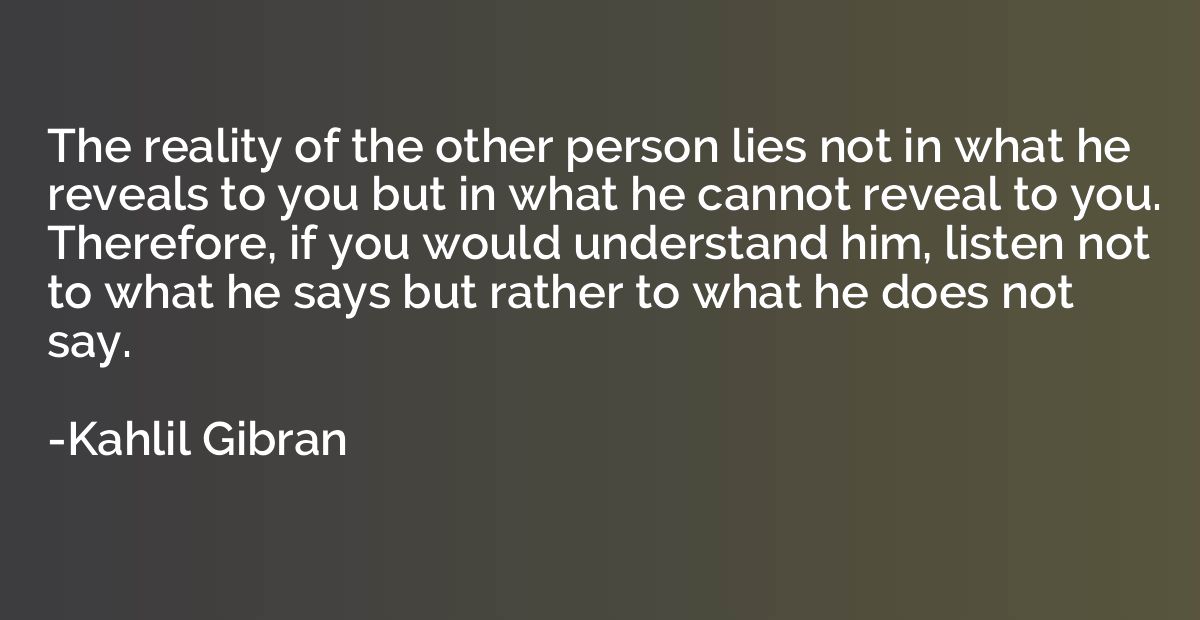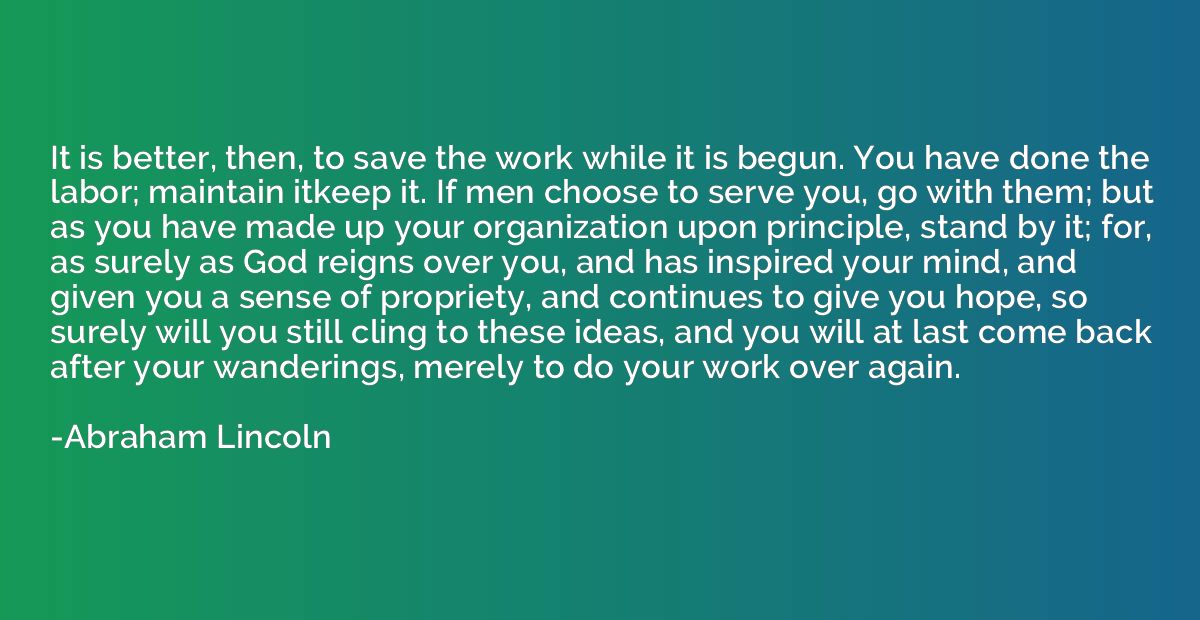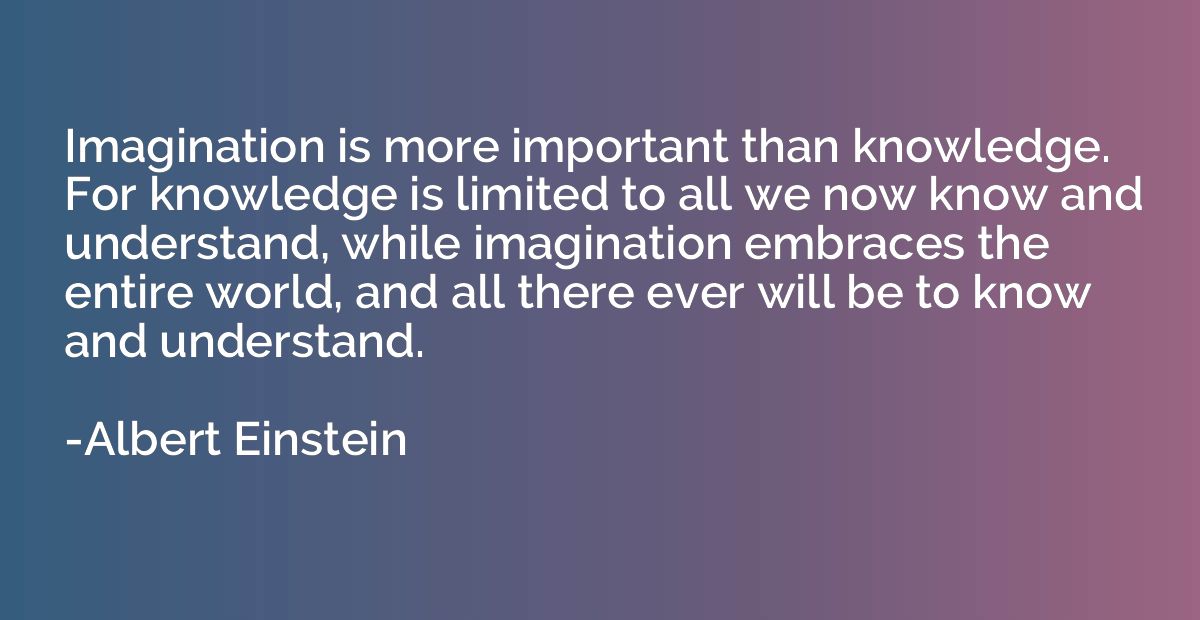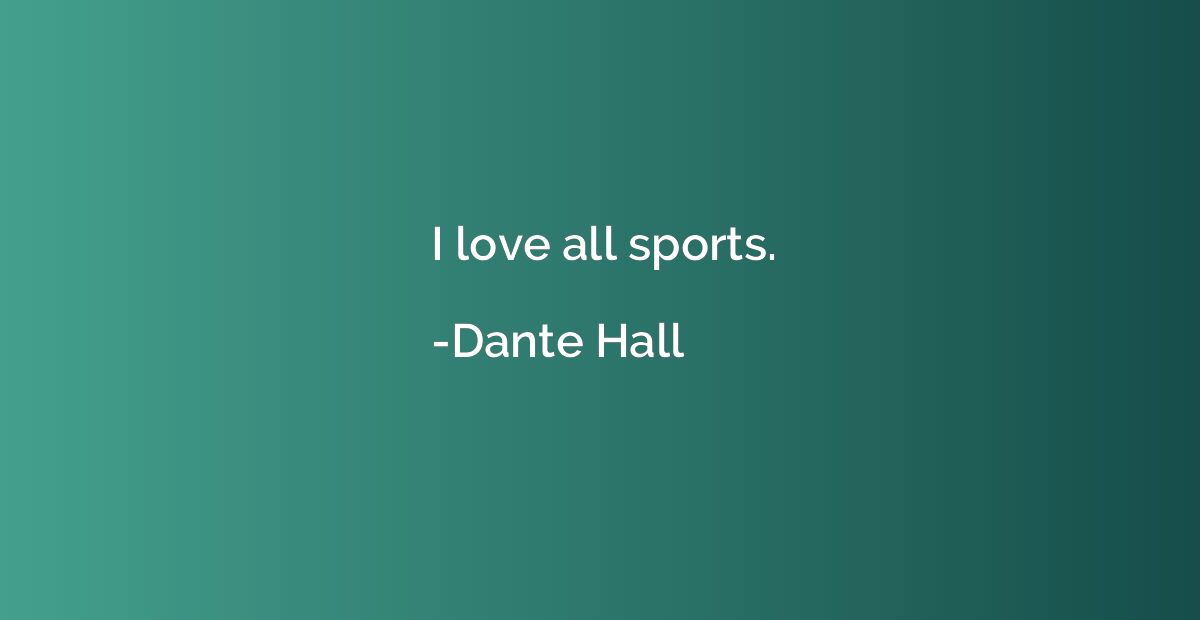Quote by Alexander Pope
Know then thyself, presume not God to scan The proper study of mankind is man.
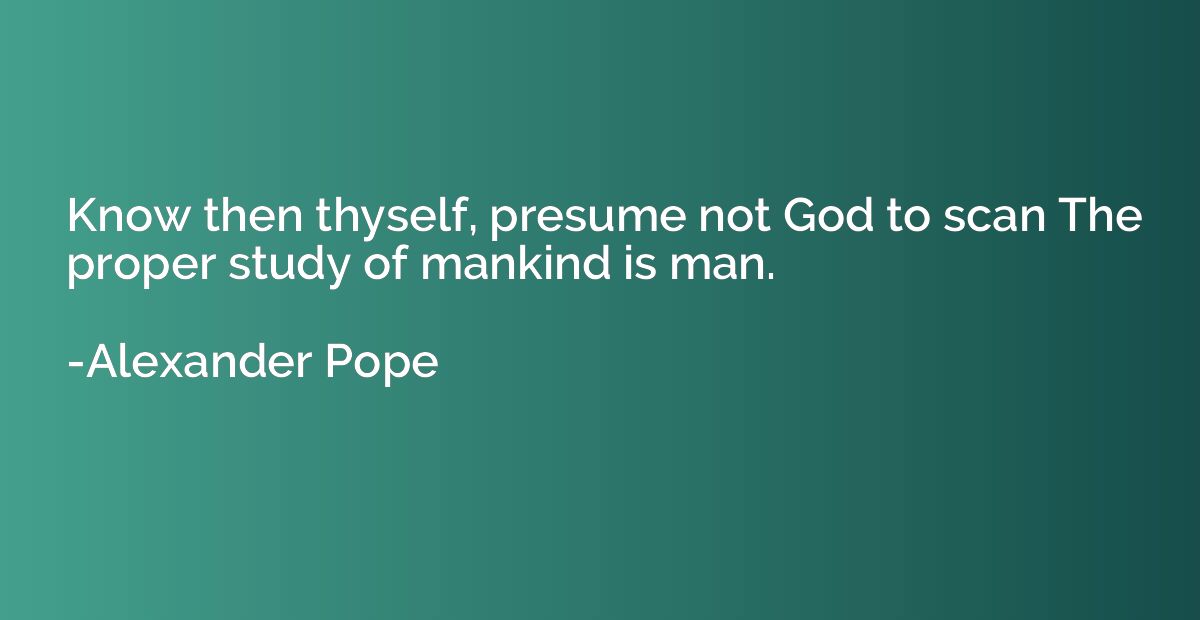
Summary
This quote, by Alexander Pope in "An Essay on Man," emphasizes the significance of self-awareness and understanding one's own limitations. It warns against the arrogance of trying to comprehend God's ways and encourages individuals to focus on understanding human nature. By studying ourselves and exploring the depths of our own humanity, we can gain valuable insights and improve our understanding of the world around us. Pope suggests that self-reflection and self-knowledge are essential pursuits for mankind, helping us to navigate the complexities of life with humility and wisdom.





